Our story begins on April 17, 1998, at Durham Regional Hospital (now Duke Regional Hospital) in Durham, North Carolina when my wife Lisa and I became the parents of our first child, Alexandra Laura Williams. Her mother always called her Alexandra but to most people she was Alex. Alex died on September 27, 2018, at the age of 20 at Duke University Medical Center also in Durham, NC. The hospitals where she was born and died are within 5 miles of each other. Alex was a college junior at North Carolina Central University also in Durham at the time of her death. She lived at home with me, Lisa, and our younger daughter Olivia who is 16.
Although Alex was only on this earth for 20 years, 5 months, 10 days, and 10 hours, she made extremely productive use of that relatively brief time. At my wife’s first ultrasound, we were amazed at the dancing and flipping that Alex was doing inside of her body. From that point on, Lisa and I knew that we needed to be prepared to welcome someone very unique and special into the world.
From the beginning, Alex was an active bundle of joy. People loved her and loved to be around her. For Alex, the feeling was mutual. But most importantly, Alex always had an uncompromising love for her family.
As a child and into her early teens, Alex participated in a variety of activities. She was involved in ballet, cheerleading, youth track, gymnastics, cross country, competitive swimming, soccer, and the yearbook staff. In high school at Voyager Academy in Durham, she and a group of friends started a club for female students in which they performed community service projects, formed study groups, discussed women’s self-confidence and self-image, and created entrepreneurial endeavors. She was extremely proud of this club, but she was even more proud to be a member of the Voyager Academy Class of 2016.
Alex had friends from almost any racial, ethnic, or economic group that you could imagine. Whenever Alex asked me if I could give her and a friend a ride, I never knew who to expect would show up with her. Alex also loved to travel. Her favorite place to travel was anywhere in the Caribbean. She also enjoyed traveling to Canada and Mexico. One of her favorite trips was a trip to California that she took with a school group during her senior year of high school. There she went on hikes in the San Francisco area and participated in community gardening projects and service projects in restaurants and homeless shelters.
She had ambitions to work in the hotel and real-estate industries when she completed college. My wife and I operate a small law office and over the years and even up until her death, Alex spent many hours working there organizing records and developing our firm’s social-media presence. She also held a few different part-time jobs while attending school including working at Which Wich and Whole Foods.
From the beginning, Alex had a natural passion for the fair treatment of females. When she was a four-year-old in daycare, her daycare teacher once told me and Lisa that Alex always reminds her to make sure that the girls and boys have equal time on the playground equipment. And, at the time of her death, Alex had mounted an effort against sexual harassment in the workplace at a job she had recently held.
Her Life Ahead of Her
In January of 2018, Alex made a decision that she did not discuss with me nor her mother. She decided to go on birth control. She went to Planned Parenthood and obtained a prescription for a generic combination hormonal birth-control pill called Levora. Levora is marketed as one of the “safer” birth control pills. These combination birth-control pills are often targeted and marketed to teens and young women as not only preventing pregnancy, but also clearing acne, minimizing mood swings, minimizing weight gain, and preventing the development of certain cancers—sort of a “miracle pill.”
But what the pharmaceutical industry and the medical community downplay is the fact that these combination birth-control pills along with virtually all hormonal birth control come with an increased risk of developing blood clots in addition to other serious health risks. What they will generally say is that the risk of developing blood clots from these products is so statistically small that women should not be too concerned about this particular side effect. They typically do not explain how dangerous blood clots are nor do they discuss the difficulty within the medical community of even diagnosing blood clots let alone treating them.
Birth control is often accompanied with information and instructions for which most of the print is fine print. The language used in the instructions is often clouded with numerous scientific and medical terms that many doctors themselves would arguably have difficulty deciphering. I have since learned there are safer, more sound, less confusing, and equally effective options for birth control available (Fertility Awareness-Based Methods), but they are rarely if ever discussed by the medical community.
Alex took this particular birth control for nine months. During that time her life was relatively normal. She worked, went to school, spent time with her friends, and spent time with her family. She also took trips to visit family members in New Jersey and went to Atlanta to see her absolutely favorite entertainer, Beyoncé. The only complaint that Alex had during this time was pain in her lower back. Alex went to the Urgent Care Center seeking treatment for her back pain in May. She was diagnosed with a muscle strain and prescribed muscle relaxants. Her back pain never completely went away but it became less frequent and less severe. However, in early August, she went to the ER because her backaches had gotten worse. X-rays were taken of her upper body and this time she was diagnosed with a lung infection and prescribed antibiotics. No further medical testing was done. However, at various times up until her death, Alex still mentioned occasional discomfort in her back and her overall energy level fluctuated more than normal.
The evening of September 25th was the last time that I spoke with Alex. She was comfortably curled up on the sofa in our family room scrolling through her smartphone with no concerns or complaints whatsoever. We told each other goodbye as I left to finish up some work at the law office. At the time I obviously had no idea that would be the last time I would speak to her.
The next morning started out as a typical sunny September morning in North Carolina. I drove Olivia to school and we arrived at her school at about 8:00. As Olivia was getting out the car, she told me that she had sent Alex and me a funny text message. When I got a chance to look at the message, it was indeed a funny family joke and Alex had responded with “lol.” That would be the last text I would ever see come in from Alex.
I then drove to the grocery store to pick up a few items. When I got back to my car, Lisa called and told me that Alex had collapsed on our driveway and that it did not look good. Alex had gone to open the door for a repairman and she immediately collapsed. She had been perfectly fine just prior and even had a comfortable night’s rest. Now she had collapsed on the very same driveway that she had sat on playing with dolls as a two-year-old, had learned to run on and have foot races with me, learned to ride a bicycle on, and pushed Olivia endless times in a makeshift cart.
I later learned from Lisa that while she held Alex in the driveway, Alex had her fists tightly clenched, fighting for her life. The call I received from Lisa was at around 8:30 am. Lisa told me that EMS was at our home but that I should head to Duke University Medical Center. I arrived at the hospital a few minutes before the ambulance. When the ambulance arrived, I insisted on being taken to the Resuscitation Room where they had taken Alex. Lisa arrived later and while standing in the hallway at the door of the Resuscitation Room we watched as approximately thirty nurses and doctors worked diligently to revive Alex at least three times. She was then connected to an Extracorporeal Membrane Oxygenation (ECMO) machine which is essentially a life support machine that we were informed is used in only the most dire circumstances.
Alex eventually spent 12 hours in surgery and post op. During that time, she put up an extraordinarily brave and courageous fight, as did her surgical team. The hospital staff was willing to go to the ends of the earth to try and save Alex’s life. The entire day our minds were numb and we were in a complete state of shock and disbelief. But we did not and have not stopped praying. We also had a steady stream of friends and family visiting us at the hospital throughout the day.
At around 10:30 pm the doctors informed Lisa and I that all of the surgical procedures had been completed but that Alex had not shown any signs of responsiveness. They wanted to do a scan of her brain. Around midnight, the scan had been completed, and we were delivered the dreadful news that no parent ever wants to hear: We were told that there was little to no brain activity and that Alex would be completely brain dead within twenty-four hours. The next morning on September 27th further tests were done which only confirmed the results of the prior test. The neurologist informed us that the damage to Alex’s brain was some of the worst he had ever seen.
Throughout the day on September 27th, we informed family and friends of the grim news. Many visitors came to see Alex throughout that day. Finally, that evening, Lisa and I decided that it was time for Alex to be released from this world and allowed to leave in the dignified manner in which she had lived. We decided to take Alex off of life support and shortly afterward, she passed away peacefully.
Because of her age and manner of death, the hospital requested an autopsy, but had they not done so Lisa and I were prepared to make that request ourselves. Alex was a healthy young woman who exercised regularly, ate a nutritious diet, and her only prior illness was strep throat when she was four. It wasn’t until we received a call about five days later from the medical examiner with the preliminary autopsy results that we were informed that Alex had blood clots in both her lungs. None of the surgeons at Duke University Medical Center who operated on Alex told us this. As soon as I learned about the blood clots, I Googled “blood clots young woman death.” That search revealed stories of numerous young women who had died very similarly to Alex. I read about lovely, vibrant, intelligent, and otherwise healthy young women who died suddenly and unexpectedly. Ironically, several of these young women even had names very similar to Alex’s. The common link in all of these deaths was the use of birth control. Lisa later searched through Alex’s belongings and found her prescription for Levora. A further search of the individual who prescribed her this birth control revealed the connection to Planned Parenthood. I then Googled “blood clots birth control death.” That search led me to the National Blood Clot Alliance, Hormones Matter, and perhaps most importantly to Natural Womanhood.
It was from the Natural Womanhood website that I emailed its President and CEO, Mr. Gerard Migeon. Mr. Migeon immediately responded to my email and subsequently he and I emailed each other back and forth several times. We even had several telephone conversations. Not only did he express interest in what happened to Alex, but he also expressed great care, compassion, and concern for Lisa, Olivia, and me. Through information that I have gathered from Natural Womanhood, I have learned even more about the tragedies that many families have faced as a result of the dangers of birth control use. Furthermore, I have also learned so much about the numerous, effective natural birth-control options that are available to women but are rarely, if ever, recommended by the medical community. Along with Mike Gaskins who has written for Hormones Matter, I consider Gerard Migeon as a friend and mentor in the area of men who advocate for women’s health.
Alex’s funeral was held on Friday, October 5th at First Calvary Baptist Church in Durham. Alex’s funeral was attended by 500-600 people. Crowd control became a problem as people lined up in the streets waiting to pay their respects. Alex’s funeral was attended by an unbelievable number of family members, friends, colleagues, and classmates of Alex, Lisa, Olivia, and me. We even received letters of condolence from several local and state government officials in their private capacities.
A Loss That’s Not Meaningless
 The main point that I want all women, especially young women, to take from our story is that hormonal birth control products are potentially deadly. If they don’t damage you early, eventually they can damage you later in life. Lisa and I discussed organ donation with the doctors at Duke. They informed us that none of Alex’s organs, tissue, or even her eyes were suitable for donation. It was as if a weapon of mass destruction had gone off inside of our daughter’s body.
The main point that I want all women, especially young women, to take from our story is that hormonal birth control products are potentially deadly. If they don’t damage you early, eventually they can damage you later in life. Lisa and I discussed organ donation with the doctors at Duke. They informed us that none of Alex’s organs, tissue, or even her eyes were suitable for donation. It was as if a weapon of mass destruction had gone off inside of our daughter’s body.
That’s how dangerous the substances that are being manufactured by the pharmaceutical industry and distributed by doctors and clinics can be. First and foremost, women should learn more about the numerous available natural contraceptive options. Many of these options (like the SymptoThermal, Creighton, Billings, and Marquette Methods) are at least as effective as birth control at preventing pregnancy, however, they do not come with the dangerous and potentially deadly side effects associated with birth control. For a woman to actually learn how her own body works is true women’s empowerment. Taking in potentially extremely dangerous synthetic substances that are typically developed and sold by men for the economic benefit primarily of men is exactly the opposite of women’s empowerment. It’s actually closer to complete and total submission. I am certain that if Alex were here, she would echo these sentiments.
Obviously, there will be many women who do choose to go on hormonal birth control regardless of the risks. For those women, it is important for them to have a good understanding of their maternal and paternal family medical history. If a woman has a family history of blood clots, cardiovascular disease, migraines, or circulatory problems, taking birth control could potentially be extremely dangerous and even deadly.
Birth control can trigger underlying genetic health issues which can result in serious irreversible illnesses or even death. That is what happened to Alex. She had a previously unknown genetic blood clotting disorder and taking the birth-control pills triggered that disorder and ultimately cost her her life. The trips to the Urgent Care and ER essentially proved to be unhelpful. They only provided treatment for her symptoms. They failed to diagnosed the underlying serious problem which was the blood clots that were likely present in her body during those visits and causing the pain in her back. On that September morning, the clots broke off and traveled to her lungs which caused her to have a massive pulmonary embolism that lead to her death. But even if a woman does not have a genetic blood clotting disorder, birth control still poses the risk of developing very serious health problems such as lupus, multiple sclerosis, Crohn’s Disease and many other illnesses.
There are medical tests that can be conducted that will determine an individual’s propensity for developing blood clots. After Alex’s death, we did have blood tests conducted on Olivia and another family member to determine the presence or absence of any genetic clotting disorders. The test results of a first cousin of Alex did reveal the presence of a genetic clotting disorder. However, the results from Olivia’s tests revealed no blood clotting disorders whatsoever, despite Alex and Olivia being full siblings.
Just to be clear, Olivia is not currently using any form of birth control but should the time come for that decision to be made, we certainly intend to strongly encourage her to practice natural contraceptive methods notwithstanding the blood test results. Genetics is a very complex subject and we can never be fully certain what traits we have inherited from each of our parents. What should be taken from this is just because one sibling does not develop blood clots from taking birth control does not rule out the possibility that another sibling could develop them.
Today, birth-control products are being very aggressively marketed toward teens and young women. Among other things, they are being sold as an effective treatment for acne and as a method of easing menstrual pain and discomfort. They are being marketed in teen magazines and on websites that young women frequently visit. Birth control can now be obtained in many states online and by using apps. Birth control can even be obtained without a prior prescription. Online companies now deliver birth control right to your door and if you don’t have a prescription you can just complete a questionnaire and they’ll write a prescription for you. By targeting teens and young women, the pharmaceutical industry and medical community are garnering lifetime customers as this demographic is likely to have a future filled with depression, cancer, and various autoimmune illnesses. All initiated in part because of their use of birth control. So, ladies, please be safe, please be careful, and most importantly please become more informed. Remember that it is your health and possibly your life that are at stake and not the pharmaceutical industry nor the medical community. This is what Alex would want for you.
Our home was once filled with endless laughter, home-cooked meals in which each of us made a contribution, practical jokes, and endless hours playing Crazy 8s on our smartphones. Now our days are filled with therapy appointments, counseling sessions, support-group meetings, and watching videos and reading books on bereavement. Our home is noticeably much more silent than it has ever been.
Lisa has lost the first child she gave birth to, her close friend, one of her closest confidants, and the child she called Nemo after the movie character. Olivia has lost her sister, her best friend, and her “second mother.” I have lost my first princess, my Sunshine Girl, and one of the main focal points of my life for the past twenty years. For all three of us, Alex will always be our five-foot-nothing girl with incredibly bright eyes, a dazzling smile, and an infectious laugh. Trips to the cemetery to visit Alex often tearfully include the question, “Alex, why are you even here?” We are like a car traveling down the road on three tires instead of four. The most painful moments are when Lisa, Olivia, or myself randomly cry out in grief. You never know when a moment of grief may strike or how long it will last.
The grief hits us in waves. Sometimes the waves are soft and brief, but most of the time the waves are heavy and vicious. Sometimes the grief hits us individually, but the worse times are when the grief strikes the three of us simultaneously. We now live lives of absolute emotional unpredictability. Nevertheless, we are so fortunate to have the love and support of countless family members and friends. Many of our friends have been lifelong but several are people who have graciously given us their kindness and support since we began this new, unexpected and extremely painful journey. We have truly learned to cherish the power, strength, and magic of a hug.
People often ask, what can we do? I ask them to pray for us. For those who do not believe in the power of prayer, I typically will ask those individuals to send us their positive thoughts and energy. However, my family believes that prayer is the most powerful tool that we as human beings possess. Praying for another is the most important thing that you could ever do for them. As I attempt to move forward in life, I have made a devout promise to Alex, Lisa, and Olivia to share our story whenever and wherever I can. I never want another family to suffer the hurt and anguish that ours is experiencing. I humbly ask that you pray that I will be granted the strength to keep the promise that I made to my family.

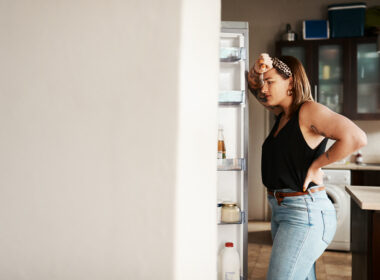
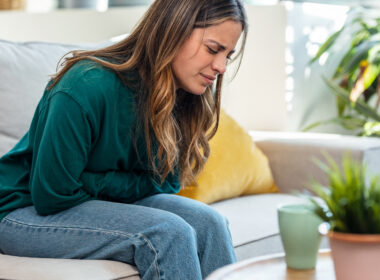
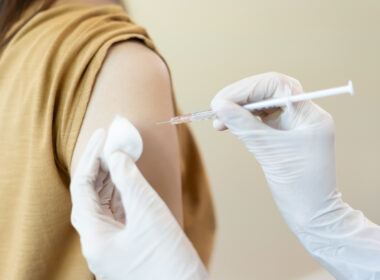

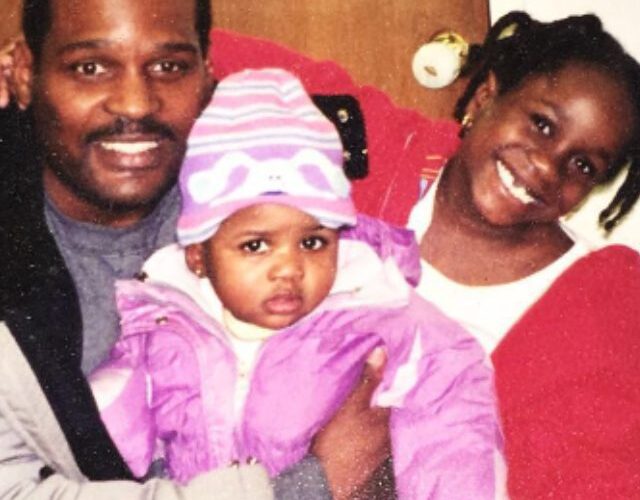

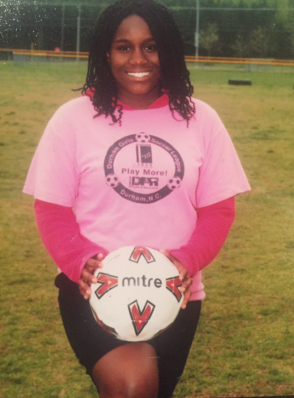


I’m so sorry for the loss of your amazing daughter.
Thank you for sharing this story. Your family will be in my prayers. Alex lives on in you all and this story which will help so many other women and girls.